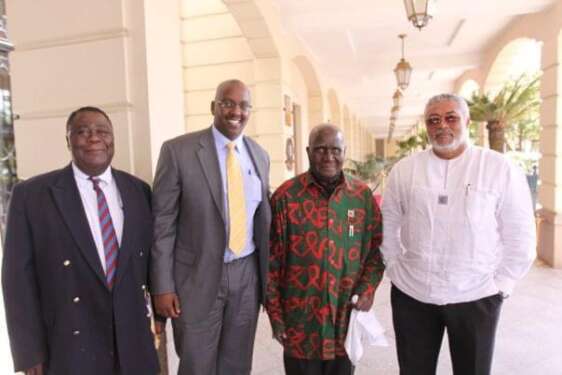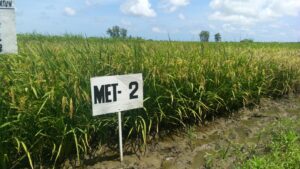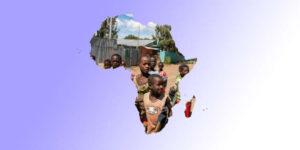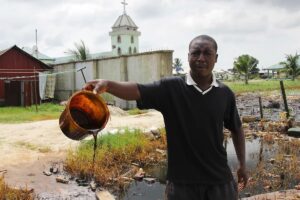- Abu Dhabi radiates optimism as over 300 startups join AIM Congress 2024
- TLcom Capital Raises $154 million in Funding to Boost Its African Growth
- Africa’s $824Bn debt, resource-backed opaque loans slowing growth — AfDB
- LB Investment brings $1.2 trillion portfolio display to AIM Congress spotlight
- AmCham Summit kicks off, setting course for robust future of US-East Africa trade ties
- Why the UN is raising the red flag on the UK-Rwanda asylum treaty
- Portugal’s Galp Energia projects 10 billion barrels in Namibia’s new oil find
- Wärtsilä Energy offers tips on how Africa can navigate energy transition and grid reliability
Opinion
- Artificial intelligence in Africa can potentially propel the fintech industry into a new era of financial inclusion.
- AI tools can analyse data from client discussions, producing legal documents in simple language and at a fraction of what it would typically take to draft a contract.
- Banks, for example, can make their services more affordable to their customers by rolling out AI-powered chatbots to handle routine queries while sparing them from having to travel to a bank branch.
It’s difficult to imagine a time before the widespread adoption of mobile technology in Africa – particularly where financial services are concerned. For millions of unbanked people, transactions were limited to cash, postal services or even the barter system.
Now, in much the same way as mobile payments completely disrupted the status quo, AI has the potential to propel the fintech industry into a new era of financial inclusion. And perhaps most exciting …
- One of the most important ways a fintech can listen to its customers is to gauge how they engage with its products.
- Having a deep understanding of customer needs results in innovative solutions.
All around the world businesses are pulling out the stops to achieve growth in what can best be described as challenging economic conditions. Africa is no exception. The continent has long been recognised for its immense potential, and as such businesses across sectors are investing heavily into the continent.
Advancements in technology make serving the unbanked and underserved populations in Africa more viable than ever before. However, that does not mean growth comes easily. It is a hyper competitive and complex environment where genuinely understanding your customer is key to growth.
Even with this textbook understanding, there is a strong urge to take the “build it and they will come” approach because we can get caught up …
- Namibia is fortunate to benefit from the experiences of other oil- and gas-producing states.
- The country’s oil and gas sector is still looking forward to reaching the production phase, but S&P Global analysts don’t anticipate Namibia’s first oil production will come until 2029.
- Further, the country’s first gas-to-power project is scheduled to begin in 2027.
Namibia’s energy sector is still looking forward to reaching the production phase — S&P Global analysts don’t anticipate Namibia’s first oil to come until 2029, and the country’s first gas-to-power project is scheduled to begin in 2027.
Ohio State Team Jersey
ohio state jersey
Ohio State Team Jersey
asu jersey
ohio state jersey
Iowa State Football Uniforms
detroit lions jersey
micah parsons jersey
micah parsons jersey
Iowa State Football Uniforms
fsu football jersey
OSU Jerseys
custom football jerseys
asu jersey
Before Namibia achieves these hotly anticipated milestones, Namibian lawmakers can implement thoughtful, …
Vaccine diplomacy will take centre stage for the global political economy in 2021. It is rapidly emerging as an important tool in the arsenal of global superpowers as they seek to expand their geostrategic influence amid the Covid-19 pandemic.
Affordable and equitable access to Covid vaccines has the potential to shape the global economic recovery, and speedy and effective rollout represents a huge opportunity to redraw global power maps and reshape strategic alliances. Naturally, the stakes are high, and the competition is intense to achieve both first-mover advantage and scale.
Africa will emerge as a theatre of competition. But with limited financial resources and a lack of bargaining power the option set will be limited for African countries as they try to procure the vaccine. This lopsided power dynamic, which has entrenched them firmly at the back of the vaccine queue, is being described as vaccine apartheid. John Nkengasong of …
‘If you take care of your employees, they will take care of your customers, and your business will take care of itself ‘J.W.Marriott’
The spread of COVID-19, (commonly referred to as Corona Virus) has now become a household term that is apparent worldwide. As a global health emergency, the hope is that the new vaccines that are aimed to roll out in early January 2021, will add to the greater safety of the human population, namely public areas and workspaces.
Though much of the frontline workers will be vaccinated first, followed by those considered in the vulnerable category, the goal for many countries is to ensure that their populations are vaccinated first.
As Governments/Employers respond to the crisis and slowing down the spread of the virus, decisions to postpone events, impose travel restrictions, withdrawal of everyday services; (restaurants, parks, beaches, cinemas, and entertainment venues) school closures, and work from home …
In a few months, COVID-19 has disrupted our lives, and we are yet to grasp the full extent of it. While the pandemic is global, it exposes current inequalities in Africa: the biggest impact will be on the most fragile countries – as well as on the impoverished, the uninsured, and the information-poor. Beyond the number of infections, deaths, jobs lost and the hit on national economies, COVID-19 will trigger a surge in extreme poverty on the African continent. Various studies have already predicted that an additional 12 million Africans will be pushed below the threshold of living with an income of less than USD 1.9 per day.
While it is easy to dwell on the challenges faced in an unexpected year like 2020, true entrepreneurs have a natural gift to focus on solutions, take action and find a silver lining to the crisis. Specifically, social entrepreneurs have a vital …
This is a financial horror story that is currently running only as an undercurrent to a tsunami of reports on rising death tolls and infection rates. Overwhelming government incompetence and inadequacy, coupled with rising graphs of deaths and hospital admission rates are dominating the news throughout a year when the real story should have been the …
On Thursday 9 November 2020, former President of Ghana, Jerry John Rawlings passed away in Accra, Ghana after a short illness.
A great man has gone to be with his ancestors. For those of us who were privileged and honored to know him, it was truly a sad day.
I met former President Rawlings in 2010 after the former Chairperson of the AU Commission Jean Ping appointed him as the High Representative for Somalia. As a staff of the African Union Mission to Somalia (AMISOM) at the time, I was then asked with my colleague James Gadin our senior political officer to assist the President and his team to understand the dynamics of the conflict.
 As I reflected on the former President, I kept thinking about the 5 Cs of leadership: Compassion, Commitment, Courage, Candor, and Competency. Former President Rawlings embodied all the 5 Cs.
As I reflected on the former President, I kept thinking about the 5 Cs of leadership: Compassion, Commitment, Courage, Candor, and Competency. Former President Rawlings embodied all the 5 Cs.
President Rawlings was first and …
The hospitality and tourism industry
The hospitality and tourism industry in sub-Saharan Africa must adopt a new “adapt and innovate” modus operandi to meet the challenges produced by the COVID-19 pandemic if it is to help prevent further contraction of severely impacted economies in the region, says Mark Havercroft, Regional Director Africa for the International hotel group Minor Hotels.
While the opening of international borders by several African countries is extremely positive news for ailing travel and hospital sectors in sub-Saharan Africa – and for economies as a whole, this may not, in and of itself, be sufficient to resuscitate the industry in the wake of the havoc wreaked by the COVID-19 lockdowns.
Not only are many of the international tourists who operators are relying on to return quickly still locked down in their own countries, but even if they’re not, there are still very high levels of insecurity around …

























